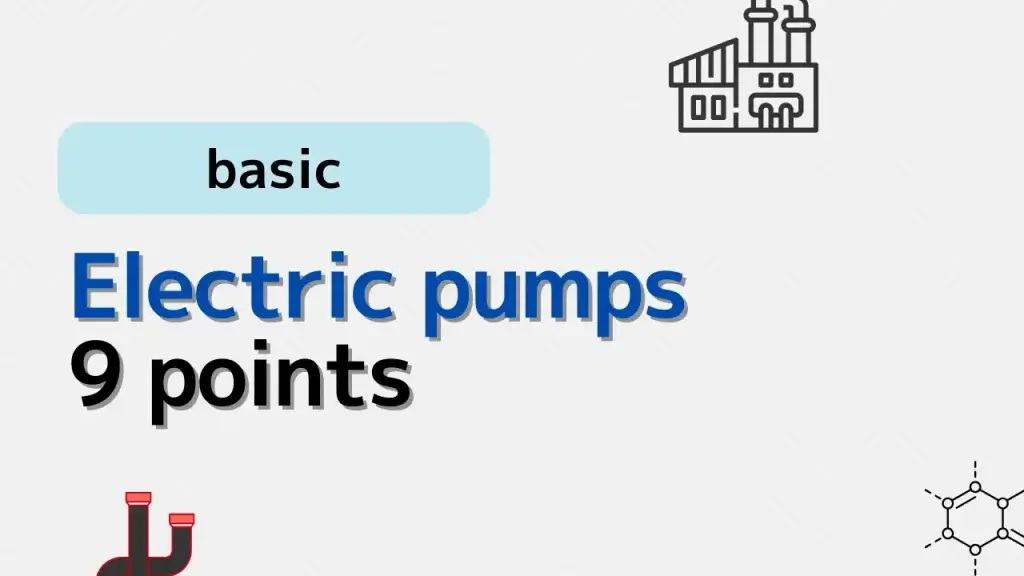Electric pumps are widely used in various industries for fluid handling. However, there are common misunderstandings and important points every engineer should know. This article summarizes 9 key comments about electric pumps based on practical experience.
Introducing articles from plantengineering.com.

The original article has 9 points about electric pumps.
I will write my opinion on this.
1. Select the right pump for the application.
Yes, conditionally
In extreme terms, this can be interpreted as selecting a pump suitable for the current process, which is not correct.
The size should be decided by considering the future plans of the plant.
The assumption is that it is a batch plant.
2. Assure pumps meet all current standards and regulations.
Yes
3. The more efficient the pump, the less energy wasted.
Yes, conditionally
However, just making the pump more efficient does not necessarily reduce energy consumption.
This is a point where I often get it wrong.
4. Do not run a pump dry.
Yes
This is the basic of all basics for both centrifugal pumps and sealless pumps.
Many people start designing and maintaining pumps without knowing this.
I want to be careful
I totally agree that you don’t believe in control.
5. Purchase a pump that is designed to be easy to clean in place.
Yes
However, it is unlikely that you will choose a pump with emphasis on cleanability.
If you want to create a piping layout that allows the pump to be easily disassembled, I’m all for it.
6. Beware pressure shock, especially from a downstream valve closing.
Yes
Running the pump increases the temperature of the contents.
During shut-off operation, the liquid in the pump will not flow and the temperature of the pump will rise.
In this sense, I would like to be careful
7. Know who to call for servicing if your pump fails or if your application needs changing.
Yes
If you are in charge of manufacturing, maintenance members apply.
If you are a maintenance member, the manufacturer applies.
Simply contacting the manufacturer is not effective, so maintain a relationship with someone who has spare parts or can actually carry out the replacement work.
8. Make sure spare parts are readily available.
Yes
9. Serviceability is important.
Yes
Sealless pumps may be able to be replaced by production operators.
If it’s a centrifugal pump, it’s difficult to find a specialized company.
Conclusion
Understanding these 9 points helps engineers select, operate, and maintain electric pumps more effectively, leading to safer and more efficient plant operation.
